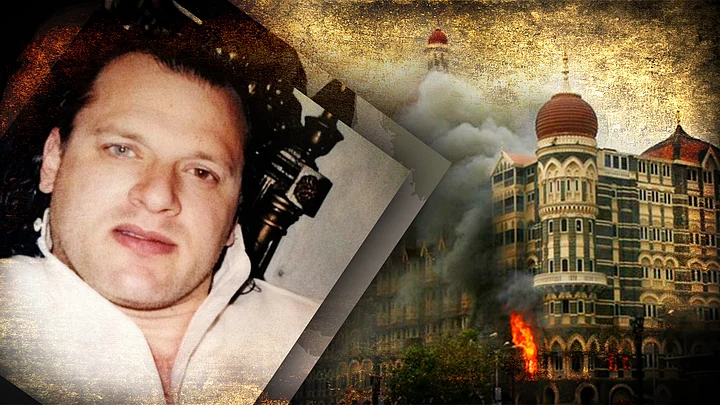Pakistan-born American national and Lashkar-e-Taiba operative David Coleman Headley deposes via video conference before a special court in the November 26, 2008 Mumbai terror attacks case for five hours today.
In light of these developments, this is an analysis from The Quint’s archives.
In a potentially significant development, a Mumbai court has accorded a conditional pardon to David Headley (born Daood Sayed Gilani), accused of being a key conspirator in the 26/11 Mumbai terror attacks, and allowed him to turn approver. The decision to allow Headley this status – approver or prosecution witness – was made on Thursday (10 December 2015) in the course of a video conference. The accused was in an undisclosed US location, serving a 35-year sentence for his role in the 26/11 attack that also killed American citizens.
The Indian investigators who have been pursuing the 26/11 case came to a determination that it would be desirable to have Headley as a prosecution witness to obtain “true” facts about the 26/11 enormity, and that a conditional pardon would be in order – the caveat being that the approver would disclose the role that his handlers had played, including representatives of the Pakistan military and intelligence agencies.
From US Law Enforcement to Pak Intelligence, Headley a slick Insider
David Headley represents one of the most complex individuals in the shadowy world of jihadi terrorism and drug trafficking. He has the distinction of being a triple-agent, having worked for the US Drug Enforcement Agency, and Pakistani intelligence agencies and terror groups such as the Lashkar-e-Taiba over a period of two decades.
Apart from the Mumbai attack, he has also been accused of plotting an attack on a Danish newspaper office, involving a cartoon controversy. In short, Headley is the slick insider who won the confidence of his principals at different points in time, and was also motivated by the ideology of jihad that transmuted into ruthless terrorism and related violence. During his testimony to the US authorities, Headley accepted his role in the Mumbai attacks, and also identified the involvement of three senior Pakistani army officers – a charge that would place the Pak military GHQ in a position of acute discomfiture, and put paid to all their denials.
However, it would be premature to expect that Headley will now sing like a caged canary when he next appears in an Indian court – through a video link on February 8, 2016. One of the cardinal tenets in the smoke and mirrors espionage world is that there never is any kind of objective and earnest intelligence-sharing. At best, there is carefully calibrated intelligence trading, and what appears in the public domain is just the tip of a murky iceberg. And many a time, that tip can be a red herring while the principals engage in private, and work out their deals.
Is the US Wary of Skeletons in its Own Closet?
In the Headley case, the US has quarantined the accused and controls access to the individual for he can spill some very unsavoury beans. For instance, the question that has come up repeatedly in India– when did the US intel know about the Mumbai attack, and did they turn a Nelson’s eye and give the Pakistani deep-state a free hand to plan and execute 26/11?
The answer to this question will remain elusive and it will be instructive to monitor the Headley testimony to assess how deadly it will, with regards to the complicity of the Pakistani military establishment, and its affiliate in Muridke – the HQ of the LeT and mastermind Hafiz Saeed. But on current evidence, it does appear that there is a greater degree of engagement between India and the US in counter-terrorism undertakings. This may have been accelerated by the post Paris global concern, along with the anxiety in the US about the California killing spree, involving a Muslim couple and their empathy for the Islamic state.
Protected by US, Pak Military May Not be Implicated
The Headley testimony could have been a catalyst for the manner in which India and Pakistan have swiftly resumed their dialogue process – the conjecture being that the US had conveyed certain signals and messages to Pakistan (maybe during General Raheel Sharif’s visit to Washington DC?) that could not be ignored by Rawalpindi.
Headley’s testimony over the next few months could be potentially valuable for obtaining justice in the 26/11 case if some of the main accused, including his Pakistani-Canadian accomplice Tahawwur Rana, LeT founder Hafiz Saeed and Lashkar commander Zaki-ur-Rahman Lakhvi, are indicted based on these revelations.
This is an appealing prospect in the interests of normative justice, but given the degree to which the US has sought to tenaciously shield the Pak military from being exposed for perfidy (even accepting the death of its own soldiers due to Pakistani double-crossing), it is unlikely that the Headley testimony will be as deadly as many in India would like it to be. Cynical yes, but perhaps closer to the reality of the spy world that David Headley inhabited with such conviction.
(At The Quint, we question everything. Play an active role in shaping our journalism by becoming a member today.)
